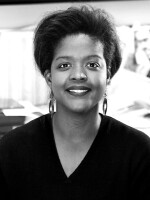STEVE INSKEEP, host:
It's Morning Edition from NPR News. I'm Steve Inskeep.
RENEE MONTAGNE, host:
And I'm Renee Montagne. Living in parts of eastern Congo right now means moving from place to place trying to stay one step ahead of warfare. A rebellion against the government led to fighting this week near refugee camps. That forced people who were already displaced to flee again. The BBC's Thomas Fessy was watching as a fragile ceasefire allowed them to leave the provincial capital Goma.
Mr. THOMAS FESSY (BBC): Down the road, we can see thousands of people returning from Goma to the place where they came from, over 20 thousand people who fled the fighting last Monday. And in these refugee camps, aid workers are now trying to bring assistance to the displaced people as the situation has calmed down.
MONTAGNE: This latest rebellion comes after a civil war that killed millions and it's all happening in an enormous nation with enormous wealth in natural resources.
INSKEEP: NPR's Gwen Thompkins is on the border between Congo and Rwanda on her way into the country, which she has visited a number of times in the past. Would you just describe this region of Congo, where it is, why it's important?
GWEN THOMPKINS: Eastern Congo is a beautiful part of the world actually, filled with lush mountains and volcanoes. But it's also a place of great misery, and it's been this way for many, many years now. Eastern Congo borders Rwanda as well as Uganda. And these countries have played a very big role in the instability that has rocked eastern Congo since the end of the reign of Mobutu in the 1990s.
INSKEEP: Well, given that there has been an off and on civil war for many of the years since the mid-90s, what has sparked the latest round of fighting?
THOMPKINS: Well, that's a good question. There was a ceasefire that was declared earlier this year in January, and that ceasefire had at least 20 signatories including the rebel force led by Laurant Nkunda. And officially, he broke the ceasefire in August of this year. Part of the reason why he said he's doing it is because he needs to protect ethnic Tutsis who live in eastern Congo. This is a tiny minority of people who he says are not being protected by the Congolese government. General Nkunda's goals have often been contradictory, but of late, he has said that he wants to topple Congo's government, that he wants to make a push not only through Goma but westward towards Kinshasa.
INSKEEP: And I suppose Congolese officials have to take that seriously, but aren't there also questions of money and who controls the immense natural resources in that part of the world?
THOMPKINS: Most people believe that that's pretty much the bottom line. General Nkunda has said that he's there to protect the small, tiny ethnic Tutsi minority in eastern Congo and much of his activity seems to be an expression of the tensions that spilled over from Rwanda during the genocide of 1994. However, Rwanda, neighboring Uganda, as well as many more of Congo's neighbors have used all sorts of fig leaves to go into eastern Congo and to plunder its mineral wealth, but unfortunately the rich minerals go hand in hand with an impoverished population that is pushed around by constant political instability and fighting.
INSKEEP: Well, let me ask about one more layer of this, because there is talk of China's government being interested in the minerals that are in the ground in eastern Congo. Does that play any role in the violence that we're seeing now?
THOMPKINS: Well, China was going to trade its knowledge and labor to create infrastructure in this country for tremendous access to Congo's copper and cobalt stores. This was touted as a win-win deal by the Congolese government, and by the Chinese of course, who are going to build much-needed roads and hospitals. General Nkunda has recently said that he opposes this deal and that part of his push toward Goma and part of his activities are designed to in some way to have a say in whether that deal moves forward.
INSKEEP: We have been listening to NPR's Gwen Thompkins and she is on Congo's eastern border near the scene of recent fighting. Gwen, thanks very much.
THOMPKINS: Thank you, Steve. Transcript provided by NPR, Copyright NPR.







